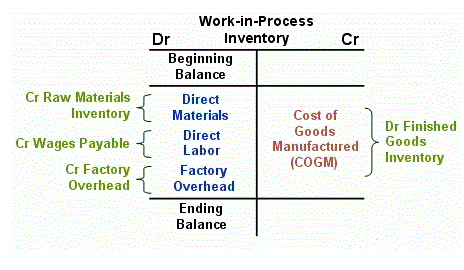Content

Public accounting refers to a business or individual accountant who provides services for multiple clients, which can be individuals or large corporations. Whether public accountants work in private practice or for an international accounting firm, they are responsible for understanding every client’s unique needs and helping them make the best financial decisions. Professional accountants can consult with clients on a number of issues, from tax and mergers to purchases and general accounting and even employee benefit plans. Under current laws and standards, accounting firms are often unable to offer consulting services to a client in addition to auditing or general accounting services. A firm that offers specific tax advice may be unable to prepare accounting information as they complete too many services for their client. Fredonia’s School of Business has the prestigious AACSB accreditation demonstrating excellence in instruction and proactive community service. Fredonia offers a very active Accounting Society where students participate in regular speaker events and visit accounting firms.
What is public accounting example?
Examples of Public Accounting Services
Preparation, review, and auditing of the clients' financial statements. Tax work including the preparation of income tax returns, estate and tax planning, etc. Consulting and advice involving accounting systems, mergers and acquisitions, and much more.
Bureau of Labor Statistics salary and labor market information for Accountants and Auditors is based on national data, not school-specific information. Develop the analytical skills needed to not only become an accountant—but to continue your evolution. CPAs are not normally restricted to membership in the state CPA society in which they reside or hold a license or certificate. Many CPAs who live near state borders or who hold CPA status in more than one state may join more than one state CPA society.
One online university. Four colleges. Flexible degrees.
The certification was originally intended to designate a person as being qualified to conduct an audit. However, the license also implies a high level of accounting expertise, and so is used to justify higher billing rates by public accounting firms. Public accountants work for individuals, businesses, or the government and may specialize in areas such as taxation, consulting, or auditing. Public accountants who meet certain qualifications can seek licensure to work as certified public accountants .
- With the help of chartered accountants from England and Scotland for training Americans to learn the procedures of accounting, many firms were established in America.
- If you’re currently studying to become an accountant, it’s extremely valuable to learn about the different branches of accounting you can enter.
- Now that you understand the fundamentals of these two accounting career paths, let’s evaluate the pros and cons of working in public vs. private accounting.
- We are the American Institute of CPAs, the world’s largest member association representing the accounting profession.
- When a PAF registers with the PCAOB, it needs to pay a certain amount as the fees.
Job prospects will be especially bright for public accountants with CPA licenses, advanced degrees and additional specialized certifications. A few states still license non certified public accountants ; however, the PA credential is gradually being phased out. Most states currently allow existing non certified public accountants to practice with grandfathered practice privileges, but have closed the credential to new candidates. Certified Public Accountant is the title of qualified accountants in numerous countries in the English-speaking world.
Related Programs
Public accounting refers to rendering services like bookkeeping, taxation, audit, and consultancy to clients within or outside the country. Whichever path you choose, it’s important to build a strong foundation of accounting knowledge and skills to succeed in public or private accounting. Private accounting, also commonly called industry or corporate accounting, refers to accountants who work for a single organization within its internal finance department. Private accountants work across every industry and sector, making this a stable career choice no matter where you live and work. According to EMSI, the median advertised salary for CPAs is $90,000 across all accounting functions.

Remembering and understanding corresponds to the lowest levels of Bloom’s Taxonomy. Starting in accountancy 2017, examiners wanted to include questions that tested higher levels of Bloom’s Taxonomy.
Search top-tier programs curated by your interests.
Auditors and tax accountants alike have specific roles in public and private accounting firms. Public accounting firms employ large numbers of certified public accountants .
State Boards of Accountancy also require CPAs to acquire a specific number of continuing professional education credits in order to renew their licenses. The skill sets needed to provide certain services to clients are highly specialized. Consequently, public accounting firms may be organized around a number of sub-specialties, each of which is staffed with employees whose training and experience are highly focused. For example, public accounting firms may market themselves as having particular expertise in areas as diverse as initial public offerings, fraud investigations, health care auditing, and litigation support for insurance claims. If you want to work in the private accounting sector, you will need a bachelor’s degree in accounting.
Key Soft Skills for CPAs
Private accountants are the ones preparing documents for public accountants to review. They work with financial managers to plan budgets, evaluate fiscal performance, and ensure that correct financial practices are being followed.
- The 150 semester hours must include a minimum of 15 hours in the topic areas described in Chapter 5, section 3 of the Board’s rules, with a least 3 hours earned in auditing and attestation services.
- The CPA is an important credential to me, and I still get continuing education credits every year to keep up with our state requirements.
- In their new position they are referred to as a private accountant, corporate accountant or internal accountant.
- Public accountants often do their work in their client’s office, and spend much less time in their firm’s actual offices.
- Arthur Andersen company executives and CPAs were charged with illegal and unethical accounting practices.
Accountants won’t need to become certified public accountants to start in public accounting, but they usually need to be a CPA to move into management positions at their firm. Different states have different requirements for becoming a CPA, and many states require you have a certain amount of school hours to be eligible to become a certified public accountant.
